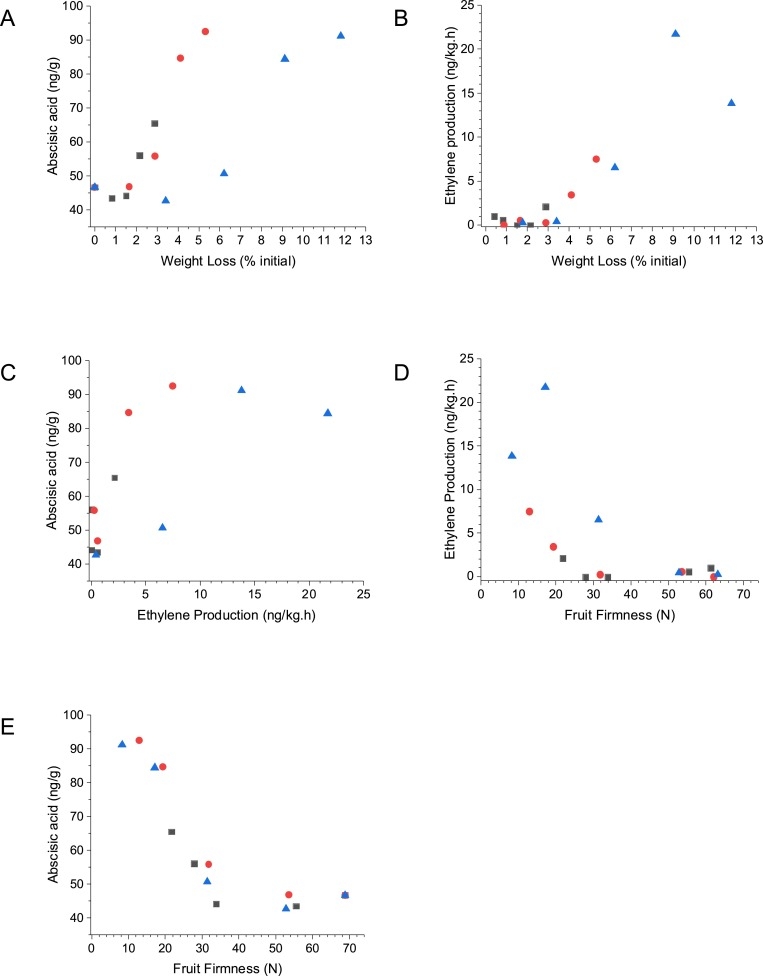Kiwifruit (Actinidia chinensis) is known as "the king of Vitamin C", or "the king of fruit", and becomes one of the important fruits. It is commercially harvested when fruit are mature and still firm, and then usually stored at low temperature to extend storage life, during which, water loss occurs. Abscisic acid (ABA) plays a role indirectly regulating ripening through ethylene metabolism. However, the information of ABA's role in kiwifruit ripening is limited and inconsistent.
A research team from the Wuhan Botanical Garden of the Chinese Academy of Sciences investigated the inter-relationships among water loss, ethylene and ABA production, and fruit ripening by holding fruit stored at 20 ℃ for six days and at 0 ℃ for 16 weeks under three environments of different humidities.
According to the researchers, water loss induced earlier ethylene production and made fruit soften faster in the late stage of storage, but water loss and ethylene production were not tightly linked to ABA content in fruit, which was strongly associated with fruit firmness, irrespective of water loss.
In addition, ethylene content in kiwifruit was mostly regulated by the alteration of expression levels of AcACS1 and AcACO1 genes, while ABA content was strongly associated with up-regulation of AcNCED4 gene.
However, the precise role of ABA in fruit softening under postharvest dehydration, either directly or indirectly regulating ethylene metabolism is yet difficult to ascribe.
The study entitled "The role of ethylene and abscisic acid in kiwifruit ripening during postharvest dehydration" was published in the journal Postharvest Biology and Technology.
This study was supported by a scholarship from CAS, and also the 'Premium Kiwifruit' Fund from the New Zealand Institute for Plant and Food Research Limited.







